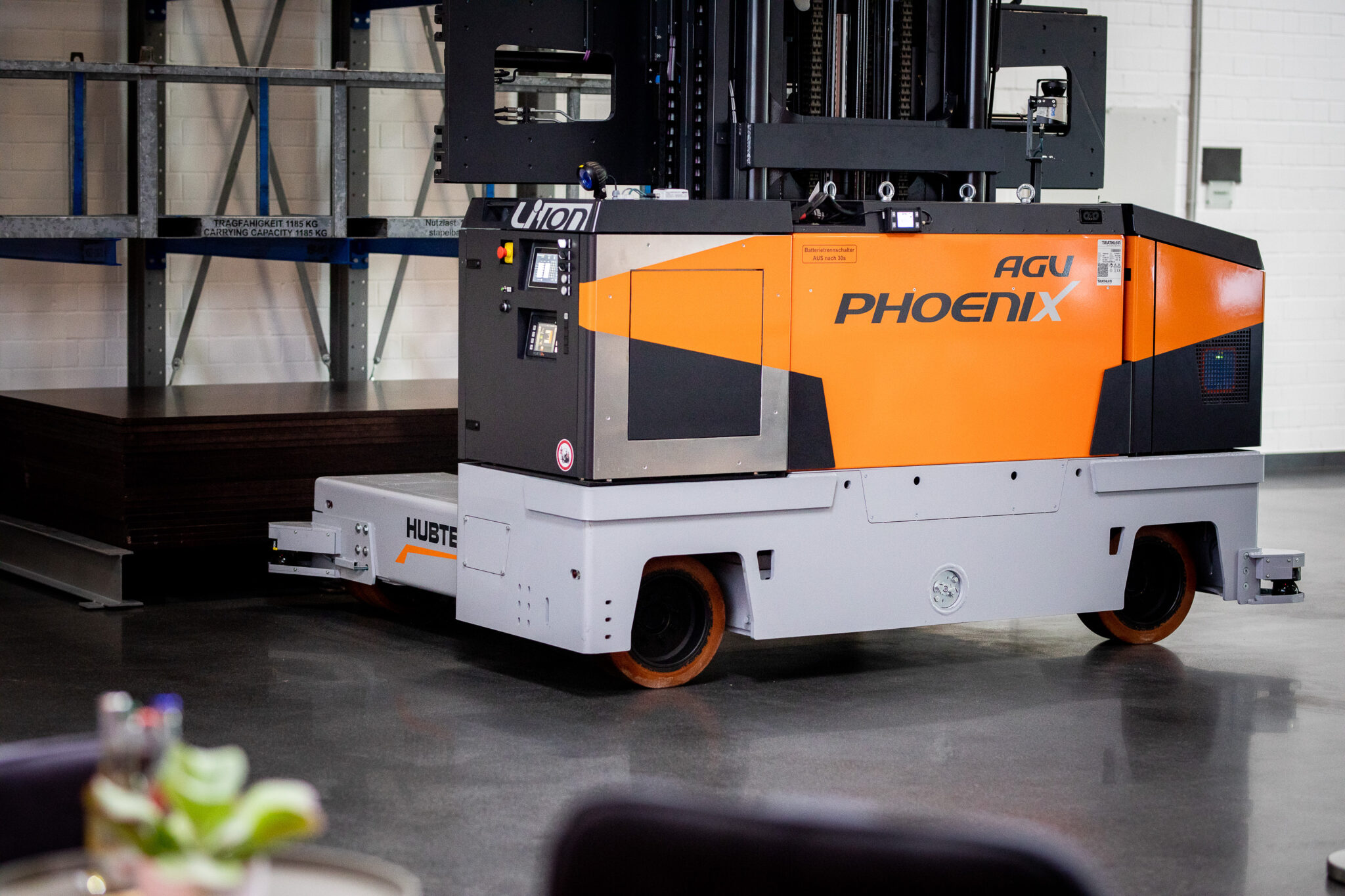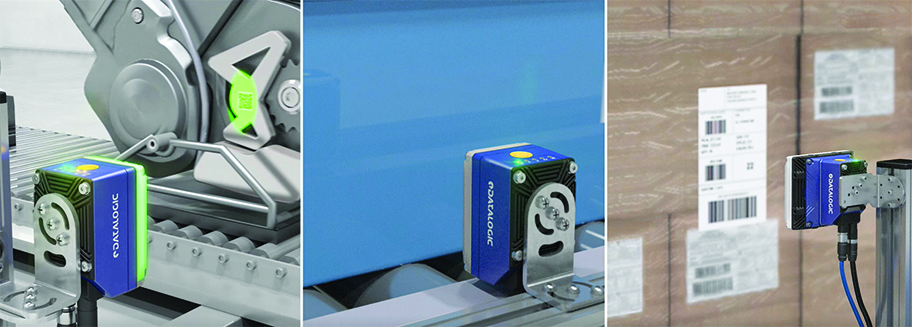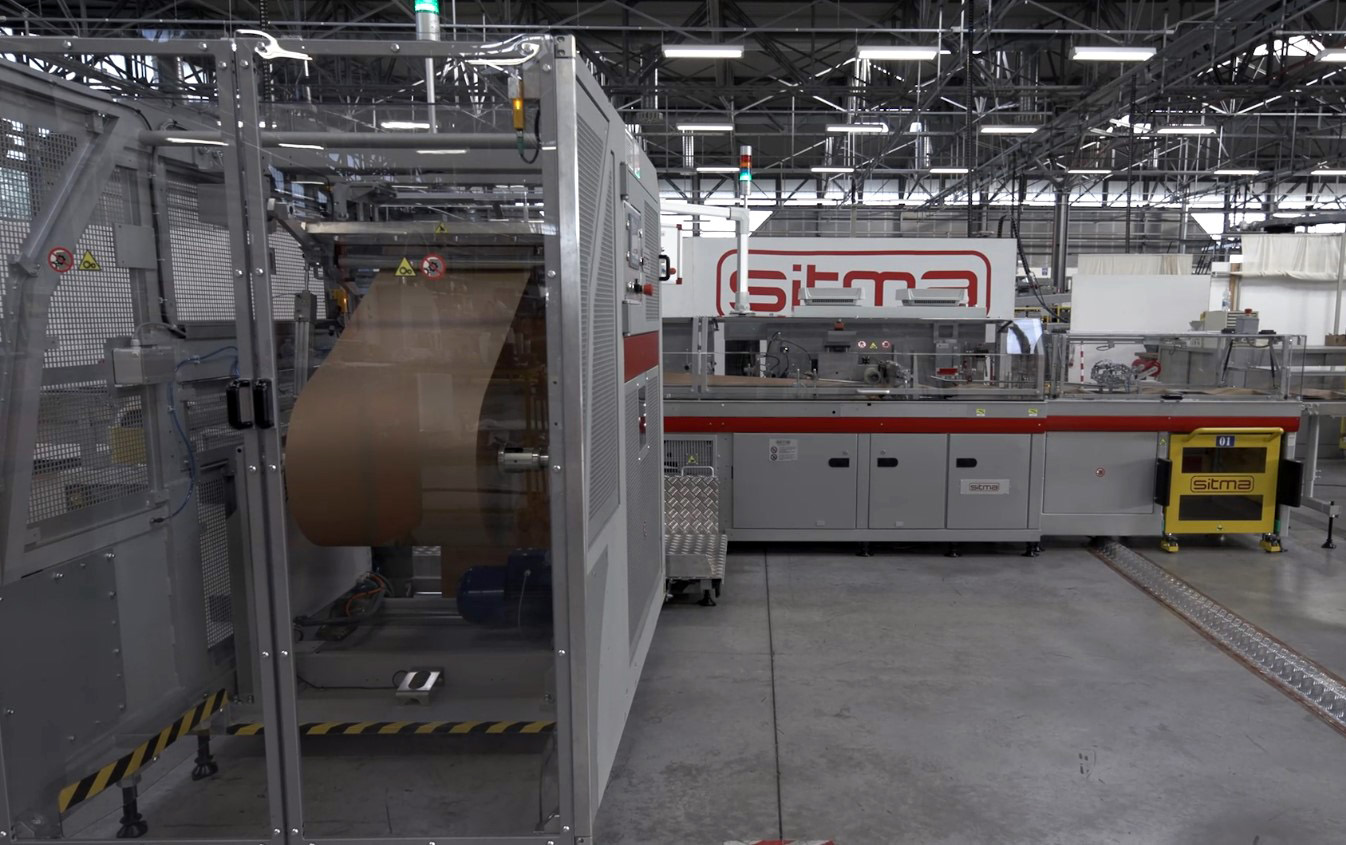Hubtex claims to have launched the world’s first fully automated electric multidirectional sideloader for handling long, heavy and bulky goods: In introducing the PhoeniX AGV, Hubtex further secures its reputation as an automation consultant with a broad range of technologies and partners. In 2021, the customer specific AGV designs will be included in the full product range of electric vehicles for the wood, sheet metal, glass and automotive industries, among others.
The basic model of the new PhoeniX electric multidirectional sideloader was designed by Hubtex for step-by-step automation utilising full electric steering, enabling longer operating times due to its lower energy consumption. Now the manufacturer has developed the fully automated PhoeniX AGV based on this core product. “We are not simply launching yet another AGV solution, we are entering a niche market where there are currently very few automated solutions – the handling of long, heavy and bulky loads,” explains Hans-Joachim Finger, Managing Director of Sales and Purchasing at Hubtex. “The PhoeniX is a perfect example of how the concept can be transferred to our entire range of Hubtex trucks with electric drive.”
The Phoenix AGV has a unique ability to recognise various long goods that protrude beyond the truck, which is crucial for multidirectional sideloaders. The truck also includes dynamic mapping, precise positioning, and block storage as standard. The unique selling points at a glance are:
• Object-based navigation
Using object-based navigation, Hubtex combines the data from navigation sensors, personal protection sensors and machine protection sensors. The personal protection sensors maintain a horizontal protective zone in the direction of travel. The driving speed is automatically reduced until the truck comes to a stop if a person or an object appears in the warning field. In addition, the personal protection scanners are used to accurately steer the AGV into the storage aisle. As well as the personal protection scanners, the truck is fitted with machine protection scanners that protect against collisions. Since the personal protection scanner only monitors a one-dimensional scanning plane at a low height, objects protruding into the path of the truck, for example, cannot be detected. A further navigation scanner acts as an additional safeguard by identifying objects in the vicinity such as cantilever racks, walls or columns. The combined data from the scanners creates an interactive, virtual map of the warehouse. This map is then used to determine the precise position of the Phoenix AGV within the hall and pinpoint the position of the storage location.
• Reliable detection of long loads
Another unique selling point is the patented long goods detection function. This enables long goods to be reliably detected and picked up, with the travel range adjusted accordingly. Unevenly distributed loads or profiles of different lengths can be seen in the detection area of the certified sensors. The load contour facing the truck is scanned for this purpose. The truck detects barcodes to carry out a plausibility check of the transport order and detects vacant spaces which can be accessed by the forks to pick up the load. Accurately determining the load length is of great importance. If the load is significantly longer than the truck, protection zones and routes will need to be adjusted accordingly.
Overcoming future intralogistics challenges
As the requirements of intralogistics continue to grow, so does the focus on the partial or full automation of warehouse processes and their flexibility. Hubtex therefore relies on an integrative concept whereby the solution is individually tailored to the customer. “With our broad range of automation technologies and extensive truck concepts for various handling tasks, we adapt our designs to the requirements of our core industries such as woodworking, steel or automotive,” says Hans-Joachim Finger. “Our consultants determine the suitable level of automation for each individual user and calculate the resulting costs. By asking intuitive questions right from the outset, we are able to provide a coherent and extremely cost-effective AGV solution.”







